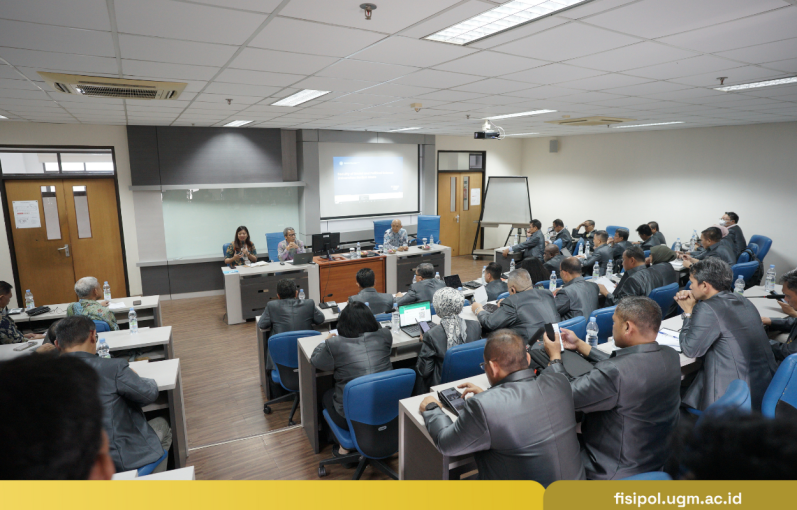
Yogyakarta, July 2nd 2024─Leadership training for State Civil Apparatus is essential in anticipating and facing increasingly complex future challenges. While shifting world issues and rapid demographic growth, ASN must have strong leadership and analytical skills to understand and respond effectively to emerging problems. In response to this, the Faculty of Social and Political Sciences (FISIPOL) UGM together with Lembaga Administrasi Negara Republik Indonesia (LAN RI) held Anticipatory Leadership Training on Tuesday (2/7) in Room BA 201 FISIPOL UGM. This training is part of the Benchmarking National Leadership Training for ASN Level I Batch 60.
With the theme “Managing Transformation of Investment Policy Governance that Supports Sustainable Development”, this training equips ASNs to respond to the challenges of the times with a practical and solution approach. ASN needs to have adequate technological literacy to increase the efficiency and effectiveness of public services, especially as digital transformation continues to accelerate.
The training was divided into 2 sessions, namely the first session entitled “Investment Policy Governance, Livelihoods, and Local Community Welfare” which presented Prof. Ir. Tumiran, M.Eng., Ph.D. and Prof. Dr. Setiadi, M.Sc., and the second session entitled “Geopolitics and Sustainable Investment” which presented Dr. Anggito Abimanyu, M.Sc., GRCP and Dr. Maharani Hapsari, MA as resource person.
This training aims to strengthen ASN’s capacity in seeing future challenges. Specifically, in terms of Investment Governance in Renewable Natural Resources, Investment Ecosystems in Rural Areas, Investment Governance in Increasing Job Opportunities, and Optimizing Investment Law Enforcement, specifically in palm oil plantations.
It is hoped that this training will encourage ASN to adapt quickly and formulate future policies that are responsive and anticipatory. Especially in facing global dynamics such as issues of climate change and equality.
